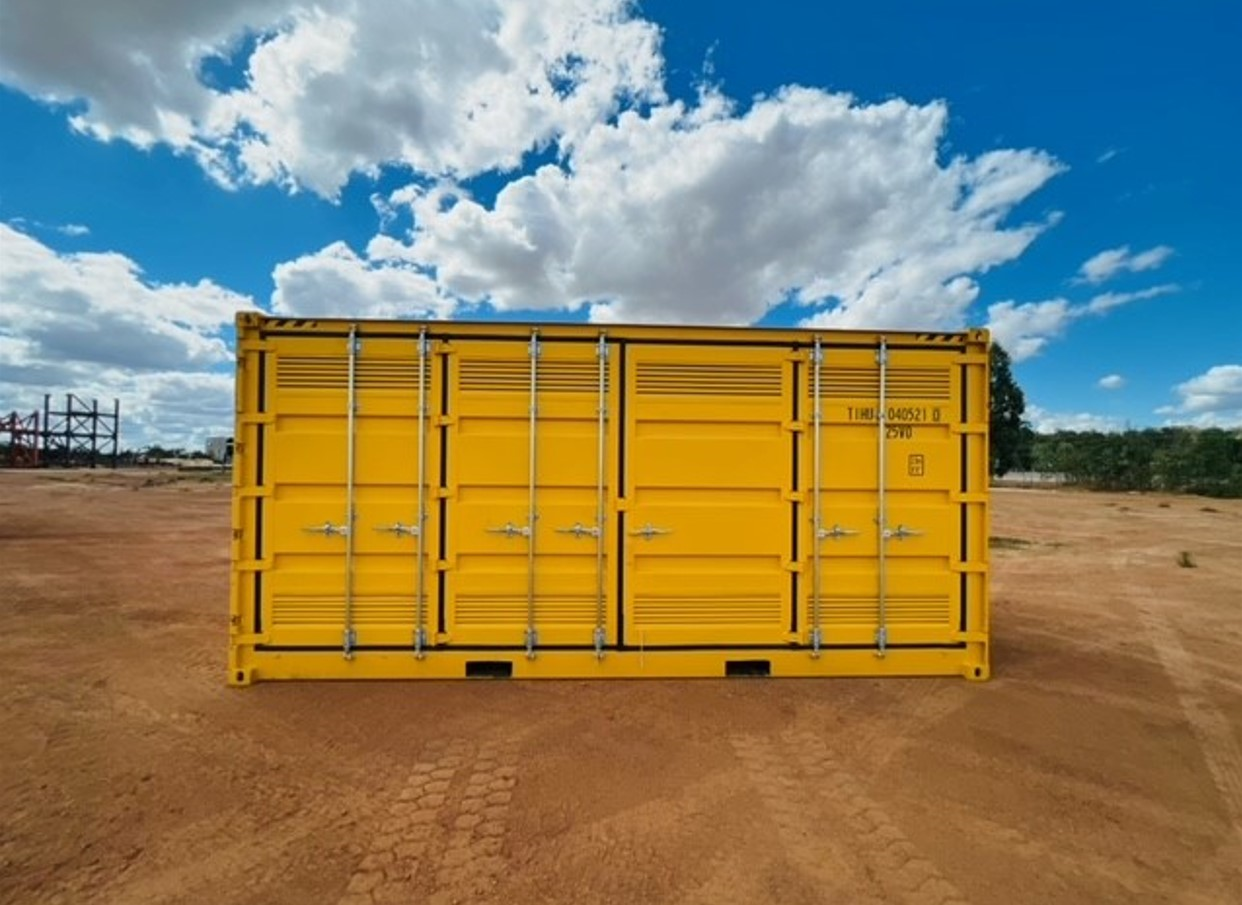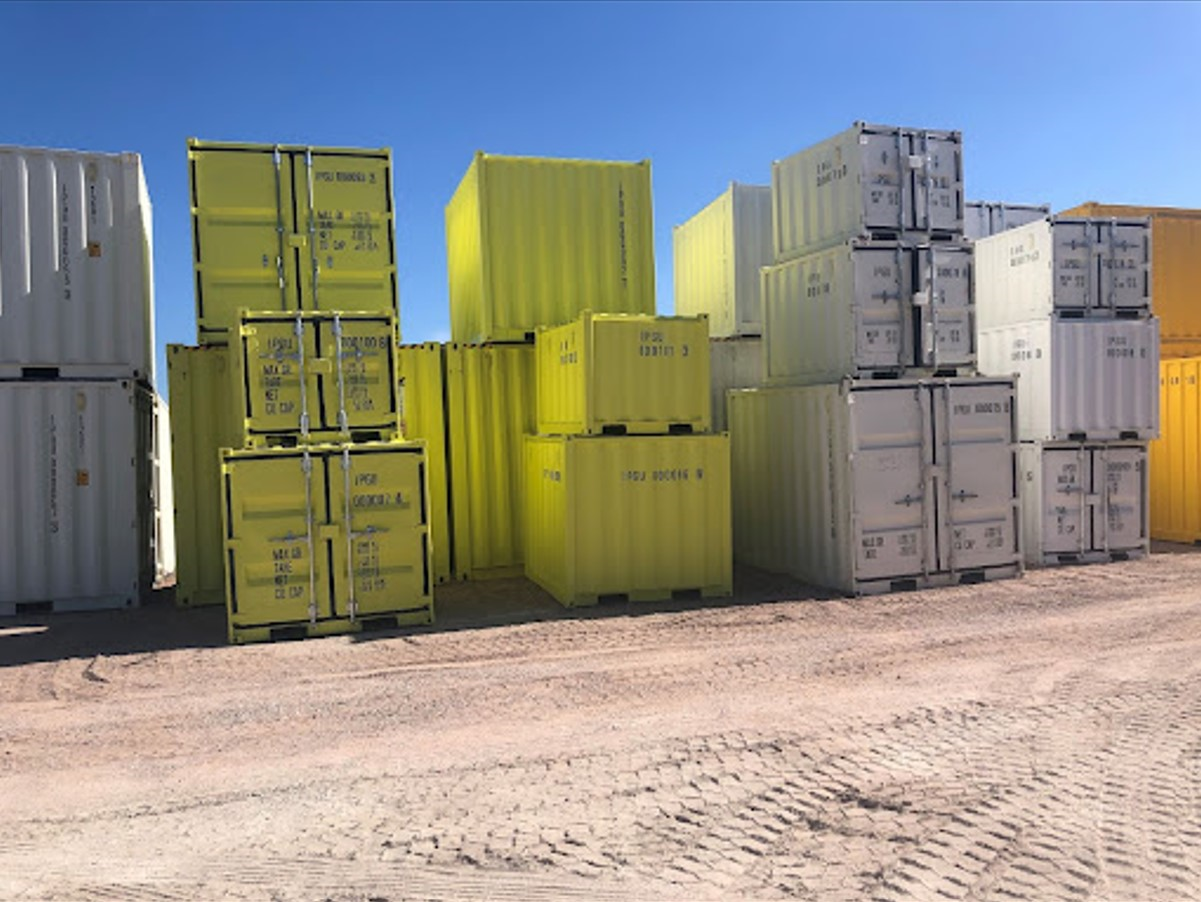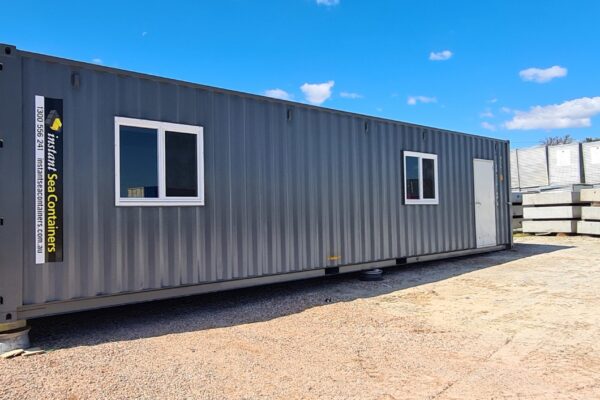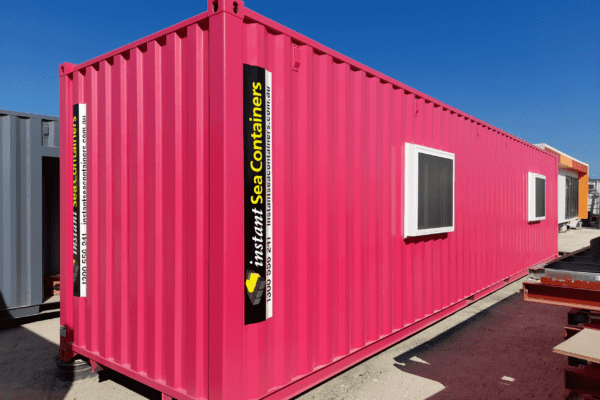Table of Contents
- Uncovering the Basics of Shipping Container Usage
- The Forbidden List: What You Should Never Store
- The Grey Area: Items You Should Store with Caution
- Understanding Cargo Containers
- Long-term Storage Considerations
- Picking the Right Shipping Container Storage
- Maximising Your Shipping Container Usage
- Making the Right Choices with a Shipping Container Specialist
Shipping containers have a wide range of commercial uses, and unsurprisingly, they excel as storage solutions in the commercial space-but to use them effectively, you need to know what not to store in shipping containers. We live in a world where repurposing items is not just economical, but also eco-friendly. Your shipping container is no exception. Originally designed for cargo transport, they’ve found a second life as storage spaces, pop-up shops and even workshops. But not everything belongs inside a storage container.
Uncovering the Basics of Shipping Container Usage
Before we jump into what not to store, let’s discuss the essentials of using shipping containers. When it comes to a storage shipping containers for sale, you’re leasing a pre-designed modular building for a set period. But, if you buy a container, it’s yours to modify as you please. This flexibility makes containers a popular choice for many storage needs.
The Forbidden List: What You Should Never Store
Hazardous Materials
Hazardous materials such as radioactive materials or toxic chemicals pose a risk not only to the people handling them but also to your property. These materials can corrode the container, damage other goods, and pose significant health and safety risks.
Therefore, storing hazardous materials in shipping containers is a strict no. This includes fireworks, explosives, or any materials that can cause harmful chemical reactions. The confined, often non-ventilated, space of a shipping container intensifies the risks associated with these materials.
However, it’s crucial to note here that dangerous goods shipping containers are specially designed for some hazardous material storage. With appropriate shipping container safety measures and strict guidelines, they can securely store dangerous chemicals and materials.
Need more information? Check out our blog on dangerous goods containers here.
Animals or Plants
While it might seem like a convenient space for your gardening tools, live plants or animals shouldn’t be stored in a shipping container. The lack of proper ventilation and temperature control can be harmful, if not lethal, to living organisms.
Food Items and Perishable Goods
Food items and other perishables are not suitable for shipping container storage without proper temperature control and ventilation. With fluctuating temperatures and poor ventilation, these items can quickly decay or attract pests, compromising the container’s cleanliness and potentially affecting other stored goods. In such conditions, your container could quickly become a hotbed for bacterial growth.
The Grey Area: Items You Should Store with Caution

Flammable Liquids
Storing flammable liquids in a shipping container isn’t strictly forbidden, but it’s not recommended unless necessary shipping container safety precautions are taken. These might include suitable ventilation and the implementation of fire suppression systems.
Sensitive Documents
Shipping containers can be an excellent space for document storage. Without humidity control, sensitive documents could risk mould and mildew damage. Ensure the documents are properly packed and that the container is watertight.
Heat-Sensitive Items
Extreme temperatures can cause severe damage to certain items like electronics, vinyl records, and household furniture. Materials like leather and wood can warp, while electronic goods may suffer irreparable harm due to moisture condensation.
Understanding Cargo Containers
Understanding the nature of these containers is critical to comprehending the “do not store” list. While they’re designed to withstand extreme temperatures and harsh conditions, their internal temperature can fluctuate, which can be detrimental for certain items.
Long-term Storage Considerations
Considering shipping containers for long-term storage? Great idea, but you need to account for factors like moisture, ventilation, and temperature control. Prolonged exposure to dampness can lead to moisture damage, ruining items like clothing, documents, and upholstered furniture. Purchasing a shipping container from a shipping container construction specialist means that you can adjust your container to fit your unique storage needs.
Picking the Right Shipping Container Storage
There are a tonne of shipping containers available on the market with plenty of choices for your storage needs. Standard shipping containers, dangerous goods containers, or even a pods container – all these options provide unique advantages. It’s crucial to pick one that best suits your storage needs and the nature of the goods you plan to store.
Maximising Your Shipping Container Usage
Now that we’ve covered “what not to store in shipping containers,” let’s explore some best practices for efficient storage.
Proper Ventilation
Regardless of what you’re storing, proper ventilation is key. It keeps the air inside fresh, preventing the growth of mould and mildew.
Regular Maintenance
Perform regular checks for leaks and rust. A well-maintained container will last longer and ensure your stored items are protected.
Appropriate Packing
Careful and appropriate packing can significantly increase the lifespan of your stored items. Consider professional packing materials and techniques.
Making the Right Choices with a Shipping Container Specialist

Shipping containers can offer a robust and cost-effective solution for storage and commercial use. But understanding what not to store in shipping containers is crucial for safety and effectiveness. A well-utilised shipping container is a valuable resource, so store wisely and reap the benefits.
We can advise on insulation for temperature control, proper ventilation systems, and even the best container types for specific items. Don’t compromise on the safety and security of your stored items; get help from our friendly team of experts and optimise your shipping container usage. Explore our range of storeroom containers. today!
For those looking for shipping containers, Instant Sea Containers offers a wide range of solutions tailored to meet your unique storage needs. Located at 18 Rogers Way, Landsdale WA 6065, we specialize in sea container sales in Perth, ensuring your items are stored safely and efficiently. Contact us at 08 9415 0720 or reach our 24/7 customer support at 1300 464 214 to explore our range of sea container for sale in Perth and find the perfect storage solution for your needs.
Frequently Asked Questions
Why shouldn’t hazardous materials be stored in shipping containers?
Hazardous materials, including radioactive substances and toxic chemicals, can corrode the container, damage other goods, and pose significant health and safety risks due to the container’s confined space and often lack of ventilation.
Can animals or plants be stored in shipping containers?
No, live plants or animals should not be stored in shipping containers due to the lack of proper ventilation and temperature control, which can be harmful or lethal to living organisms.
Are food items suitable for storage in shipping containers?
Without proper temperature control and ventilation, food items and perishables are not suitable for storage in shipping containers as they can quickly decay or attract pests, leading to contamination and health risks.
Is it safe to store flammable liquids in shipping containers?
Storing flammable liquids in shipping containers is not recommended unless necessary safety precautions, such as suitable ventilation and fire suppression systems, are taken to mitigate the risk of fire and explosions.
How can I protect sensitive documents stored in shipping containers?
To protect sensitive documents from damage due to humidity and moisture, ensure the documents are properly packed, and the container is watertight. Consider using dehumidifiers or silica gel packs to control moisture levels.
Are shipping containers good for storage?
For every point mentioned on what not to store in shipping containers, there are several more for the fantastic application of a shipping container for storage. Shipping containers provide a durable and spacious option for a huge range of goods. On top of this, these containers allow for quick and easy transportation, making them a great option for general storage.
[/vc_column_text][/vc_column][/vc_row]

Managing Director at Instant Sea Containers
Scott Rawson is the Managing Director of the Instant Products Group, a specialist group of companies that offer portable building solutions, including sea containers, transportable offices, and portable sanitation products.



